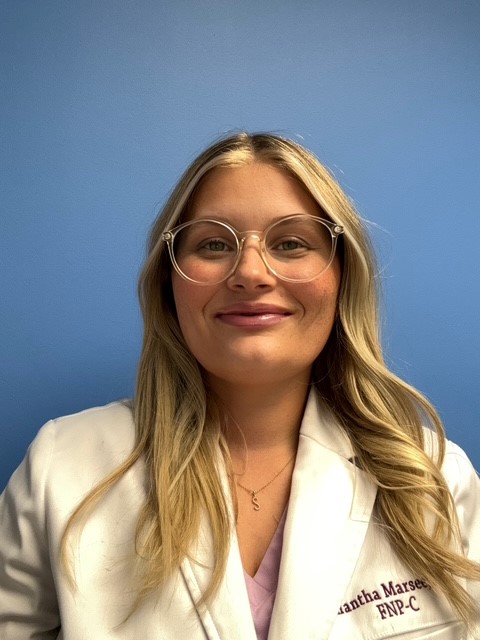In the two counties around nurse practitioner Samantha Marsee’s clinic in rural northeastern Maryland, there’s not a single clinic that provides abortions. And until recently, Marsee herself wasn’t trained to treat patients who wanted to end a pregnancy.
“I didn’t really have a lot of knowledge about abortion care,” she said.
After Roe v. Wade was overturned, she watched state after state ban abortion, and Marsee decided to take part in the first class of a new training program offered by the University of Maryland School of Medicine and the University of Maryland-Baltimore.
Marsee learned how to administer medication abortion pills, procedural abortions, and highly effective birth control methods, including hormonal implants and intrauterine devices.
She cares for patients with all sorts of everyday ailments and health conditions, including pregnancy. “I do have patients who come in for confirmation of pregnancies and then disclose they don’t want to continue with the pregnancy for whatever reason,” Marsee said.
Now, with her new training, she can help.

Expanding the pool of health care providers with reproductive health care skills outside of the state’s urban centers is vital, said Mary Jo Bondy, associate dean of the School of Graduate Studies at the University of Maryland-Baltimore. She helped create the new training program.
In 2022, Maryland lawmakers passed the Abortion Care Access Act, expanding the type of medical care nurse practitioners, physician assistants, and certified nurse-midwives could offer, including abortion, and the training program “prioritized that group,” Bondy said.
Those types of professionals have long provided abortions to rural patients in other states, Bondy said, and “we have proof that receiving this care from an advanced practice clinician is safe.”
As many as 120 health care providers will be trained over the next two years. Some participants have said they are returning to communities that are hostile to abortion rights.
On Nov. 5, voters approved a ballot measure to protect reproductive rights in the Maryland Constitution, by an overwhelming margin, preliminary results show. The state is widely considered a safe haven for patients who live in states with abortion bans. The number of abortions in Maryland increased 29% from 2019 to 2023, driven largely by out-of-state residents. But one training participant, a family physician from the Eastern Shore, said providing abortions makes her concerned for her physical safety and asked not to be identified.
“The rural catchment and politics really drive it either out or at least into the quiet,” she said of abortion availability where she lives. She worries that her employer will question the prescriptions she writes for medication abortion pills and said pharmacists often refuse to give the medication to her patients.
Even in Maryland, pharmacists are allowed to refuse to dispense medication abortion pills.
As more health care providers are trained in abortion care, they need help from the state’s medical schools and health officials to overcome these barriers, the family physician said. She wants help with “access to medication and pushing in some ways the hand of our employers, or normalizing, ‘This is just health care.’”
For Marsee, the next step is to figure out how to let her patients know she can provide abortions. She plans to tell her current patients and hopes they’ll tell others.
“I’m working on a way to let people know that I’m here and can provide it,” Marsee said. “This is a conservative area, so it’s walking that line. I want people to know I’m here, but I don’t want to cause too much outrage and attention.”


